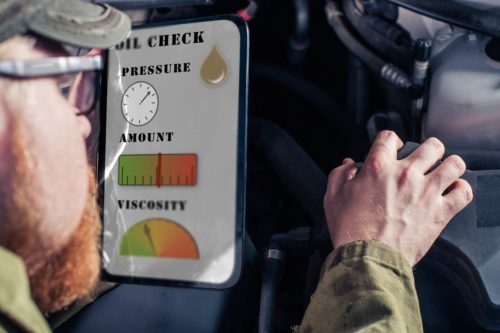Blog
Oil analyses are performed on used engine oil to determine the specific properties and characteristics of the oil. In this way, operators can better detect possible wear or contamination occurring in the engine as well as any outside contaminants that may enter the system from breather ports or pool oil replenishment practices.
The Benefits of Regular Oil Analysis
Conducting regular oil analyses can help create a baseline for what an engine, gearbox, or bearing normally looks like. This then allows for easy comparison between the unit being assessed and its baseline condition, allowing professionals to more efficiently identify unusual conditions or contamination that may be a sign of trouble. Oil analyses are a critical aspect of preventative engine maintenance, helping to detect problems before they become major issues that can impede motor operation or even cause motor failure.
When moving parts come into contact with one another, this inevitably results in some degree of wear, introducing very small metal particles into the oil. And because these particles are microscopic, they end up staying in the oil. Other products used in the machinery’s operation, plus any interior contamination, will also end up in the engine’s oil.
In this way, oil analysis allows for a full picture of engine condition; closely examining the contaminants in the oil can help in determining the state of the engine, as well as any problematic buildup. And, as mentioned earlier, identifying these problems early on allows for quick, efficient completion of necessary preventative maintenance, greatly reducing the chances of motor failure.
The Oil Analysis Process
When taking an oil sample, it’s crucial to wait until the lubricating system or component has been operating long enough that it can reach its operating temperature. Waiting until the system hits this temperature helps to ensure that the oil has circulated completely through the system and that the sample taken is an accurate representation of what’s in the motor. It’s also important to draw the oil from the same point every time to allow for optimal accuracy.
Once the sample is taken, the lab can conduct the actual analysis, studying key characteristics of the oil sample — such as viscosity, water/coolant contamination, fuel dilution, solids, total base number, total acid number, and particle count — to determine the root cause and the effect on the engine.
For example, low viscosity may be caused by dilution, use of the wrong fluid, or an additive shear, and can lead to insufficient lubrication, metal-to-metal contact, and overheating. Identifying a specific characteristic like this can be hugely helpful in determining what type of problem is occurring and what can be done to prevent it from causing further issues.
Interpreting Oil Analysis Results
The interpretation of results is done in two phases: the comparison and the diagnosis. The comparison phase involves comparing current results to those of the previous oil analysis to see if any changes have occurred, as well as comparing the results to established warning limits. The diagnosis phase involves using the outcomes of the comparison phase to determine if a problem exists and what actions should be taken to correct it in order to ensure reliable motor operation.
Conducting regular oil analyses allows for a range of benefits, including lower and fewer repair bills, reliable prevention of motor bearing failure or gearbox failure, reduced downtime, and longer product life.
Learn More
For over 30 years, Renown Electric has specialized in all aspects of electric motor maintenance and repair, including oil analysis. Our technicians have the training and expertise needed to accurately assess lubricating oil, and we know exactly what to look for; whether your oil is showing signs of high oxidation or low viscosity, we’re here to identify and resolve any problems before they become major issues.
And our preventative maintenance services can help detect wear up to three months in advance of any failure, serving as a low-cost, reliable way to ensure optimal engine performance and longevity. To learn more about Renown’s oil analysis services and discuss how they can help with your unique application, request a quote today.










Comments are closed